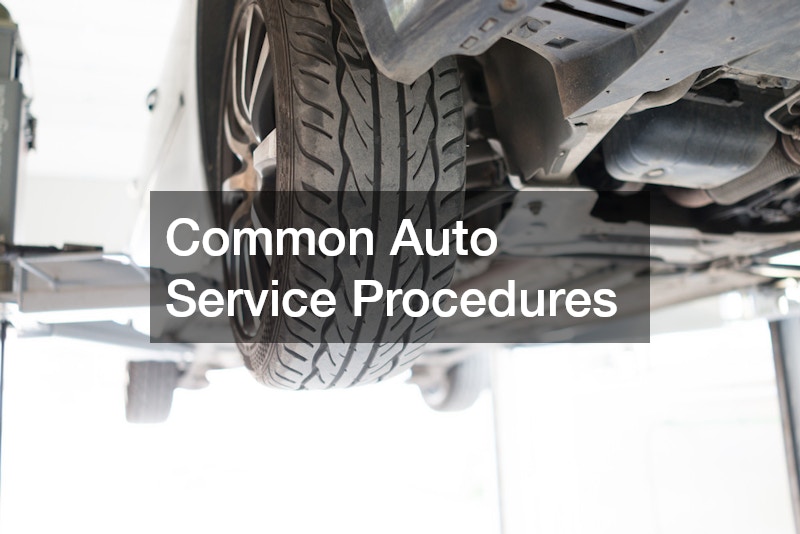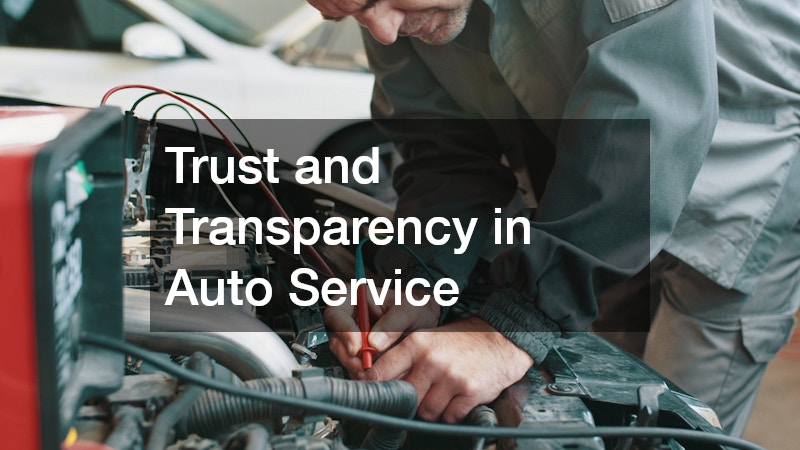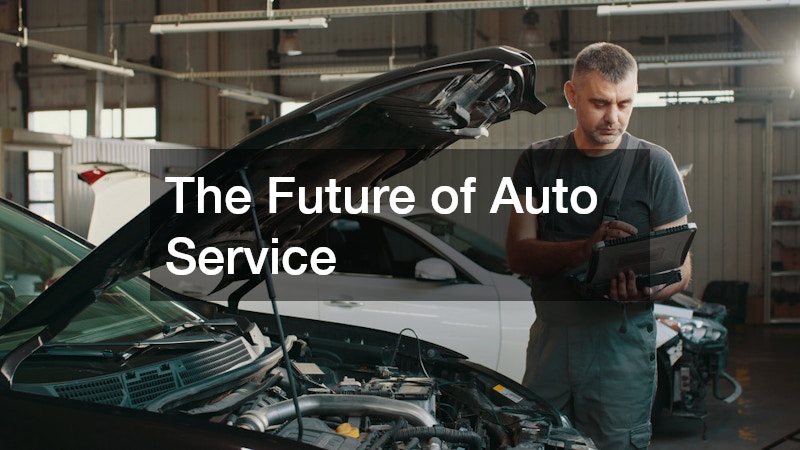The essence of professional auto maintenance lies in its comprehensive approach to keeping your vehicle operating according to manufacturer specifications. These services ensure that all components work harmoniously to support optimal performance, fuel efficiency, and long-term reliability. Regular maintenance routines such as oil changes, brake inspections, fluid top-offs, and tire rotations are essential to prevent more serious mechanical issues from developing over time.
Understanding Auto Service

Brake repairs are among the most critical aspects of auto care, given their direct impact on vehicle safety. Regular brake inspections and timely maintenance help avoid unexpected failures on the road, protecting both drivers and passengers. Incorporating brake system checks into scheduled maintenance highlights the importance of this component in overall vehicle health.
Being proactive with routine automotive service can save vehicle owners from severe mechanical breakdowns and costly emergency repairs. By identifying wear and tear before it escalates, maintenance visits extend the vehicle’s lifespan and enhance overall driving safety. In addition, consistent upkeep helps preserve fuel economy, improves handling, and supports a higher resale value.
Modern auto service centers also emphasize transparency, digital recordkeeping, and customer education. These improvements help drivers better understand their vehicle’s needs, make informed decisions, and trust that their vehicle is in expert hands. In today’s fast-evolving automotive landscape, such service excellence is more important than ever.
Why Regular Maintenance Is Crucial
Auto body repair services go beyond fixing physical damages; they play a crucial role in maintaining the structural integrity of a vehicle. Even minor dents, if left unaddressed, can escalate into rust issues that undermine the vehicle’s stability and performance. Consistent factory auto service ensures that these minor issues are rectified promptly, preventing long-term damage.
Vehicle longevity is dependent on regular car repair and maintenance schedules. Missing out on scheduled services can lead to engine inefficiencies, reduced fuel economy, and increased emissions, which could be detrimental to the environment. Factory auto service is designed to tackle these issues before they compromise vehicle health and ecological impact.
Regular maintenance builds confidence in vehicle reliability. Knowing that your car has been inspected and maintained regularly allows for peace of mind when traveling. This reliability is particularly important for long-distance travelers or those living in remote areas where access to a car repair shop may be limited.
Factory Service & Warranties
Factory service agreements often include comprehensive warranties that serve as a safety net for vehicle owners. These warranties cover a wide range of potential mechanical failures, offering repairs or replacements at no extra cost as long as regular service intervals are adhered to. This relationship between factory service and warranties incentivizes owners to keep up with regular maintenance.
A car repair shop that is authorized to carry out factory auto service stands out due to its adherence to manufacturer guidelines. These shops provide services that meet or exceed the high standards set by vehicle manufacturers, ensuring your car receives the best possible care. This standard of service often includes the use of specialized tools and technology that are not available at generic or third-party repair facilities.
The warranties associated with factory auto service not only emphasize the importance of maintenance but also promote the use of genuine parts over aftermarket alternatives. This ensures that the vehicle continues to perform optimally without adversely affecting warranty coverage. Thus, maintaining the vehicle’s value and performance consistency.
Common Auto Service Procedures

Comprehensive auto maintenance often includes a range of routine check-ups and essential service procedures. These typically involve oil and filter changes, brake inspections, tire rotations, and coolant system evaluations—each playing a crucial role in ensuring the vehicle runs smoothly and efficiently. By following a regular maintenance schedule, car owners can reduce the risk of unexpected breakdowns and avoid costly repairs.
Car repair services offered through authorized dealerships or certified service providers are designed to be thorough and aligned with manufacturer standards. Detailed inspections covering areas such as transmission health, auto wheel alignment, and suspension performance ensure that each component is functioning optimally. This meticulous approach extends the lifespan of the vehicle and contributes to safer, more reliable driving experiences.
Additional offerings such as evaluations of paint condition and customized rim alignment also form part of a comprehensive maintenance strategy. These services not only maintain a vehicle’s visual appeal but also play a role in improving fuel economy and aerodynamics. Cosmetic details, when paired with precise mechanical care, reflect a holistic philosophy of vehicle upkeep.
Advanced service centers often use digital diagnostics, OEM-approved parts, and certified technicians to deliver high levels of precision and consistency. This ensures that vehicles receive the same quality of care they were designed for, whether they’re new or approaching high mileage. For owners looking to protect their investments and enjoy peace of mind, professional auto maintenance continues to be a smart and practical choice.
Genuine Parts vs. Aftermarket Parts
Using genuine parts in factory auto services guarantees compatibility and optimal performance. These parts are designed specifically for each vehicle model, ensuring they fit perfectly and operate as intended. This reduces the risk of malfunctions that can occur with the use of generic, aftermarket parts which might compromise vehicle integrity.
Choosing aftermarket parts for custom rim installations or auto body repairs can sometimes void warranties provided by manufacturers. Genuine parts, on the other hand, not only uphold the warranty but also maintain the vehicle’s resale value. The assurance of quality and longevity makes them the preferred choice for discerning vehicle owners.
Factory auto service centers often offer extended support and service packages that include inspections, diagnostics, and scheduled maintenance. These programs build trust through consistent care and transparent pricing. The expertise of certified technicians further enhances the effectiveness of each service.
While aftermarket parts might seem cheaper initially, they often lead to recurrent car repairs due to their lack of precision and quality. Auto service using genuine parts prevents this cycle of repairs, leading to long-term cost savings. The investment in quality parts and service pays off over the vehicle’s lifespan.
Cost Considerations in Professional Auto Maintenance
The cost of professional auto maintenance is an important factor for car owners, particularly when faced with potentially expensive repairs like transmission replacements or engine overhauls. While dealership or manufacturer-recommended services may seem more expensive upfront compared to independent garages, they often deliver superior quality, consistency, and peace of mind. The thorough inspections and adherence to manufacturer guidelines can help identify problems early and prevent more severe, costly repairs down the line.
Choosing high-standard maintenance is ultimately an investment in your vehicle’s longevity and day-to-day performance. The relatively small costs associated with scheduled service visits can help prevent catastrophic issues that may require major repairs—or even lead to premature vehicle replacement. Routine care also contributes to smoother operation, better fuel efficiency, and improved safety on the road.
Another key financial benefit lies in the connection between authorized service and warranty coverage. Many automakers require that vehicles follow a specific maintenance schedule to remain eligible for warranty benefits. As long as services are completed on time and properly documented, covered repairs often come at little or no cost to the vehicle owner. This can translate into significant savings over the lifespan of the vehicle.
Additionally, maintaining a detailed service record with certified professionals adds value at resale. Buyers are more likely to trust a vehicle that has been regularly serviced by trained technicians using approved parts and procedures. This attention to care enhances both the reliability and resale potential of your car—making professional auto maintenance a wise financial decision in the long run.
Trust and Transparency in Auto Service

Trust is a cornerstone of the relationship between vehicle owners and their preferred factory auto service provider. Transparency in service processes ensures that car owners understand what services are rendered, why they are necessary, and how they impact the vehicle’s performance. This clear communication builds customer confidence in the service provider.
Reputable auto body repair services are built on transparency and accountability, providing detailed breakdowns of all procedures and associated costs. This openness allows vehicle owners to make informed decisions about repairs and maintenance. Such transparency also incentivizes service providers to uphold high standards of integrity and workmanship.
The ongoing relationship between customers and factory auto service providers is continually reinforced through trust. Customers know their cars are being cared for by professionals well-versed in the specific requirements of their vehicle brand. This assurance is essential for maintaining peace of mind concerning vehicle performance and safety.
How to Choose the Right Auto Service Center
Selecting the right car body shops or service centers often hinges on their reputation and the range of services they offer. Look for workshops that are authorized by manufacturers to conduct factory auto service, as this guarantees adherence to the highest standards. Resourceful customer reviews and certification verifications can guide car owners to the right service center.
When considering the right auto service center, the availability of services such as brake repairs and transmission repair should be a priority. A comprehensive service offering not only ensures that all vehicle needs are met at one location but also enhances convenience for the car owner. This simplifies the maintenance process, making it easier to keep up with scheduled services.
The capability of a service center to offer specialized services, such as custom rim installations and auto wheel repair, can be a deciding factor. Access to advanced technology and experienced technicians underscores a service center’s ability to cater to diverse vehicle needs. Car owners should prioritize centers that can efficiently handle both common and unique service requests.
Technological Advancements in Auto Service
The integration of technology in factory auto services has revolutionized vehicle maintenance and repair. With advancements like computerized diagnostic tools, technicians can quickly identify and address underlying issues with precision. This reduces the time vehicles spend in the shop and enhances the accuracy of repairs performed.
Modern car repair services harness technology to optimize efficiency and service quality. Innovations such as automated car painting service and robotic assistants in auto body repair settings represent the cutting edge of automotive servicing. These advancements ensure vehicles receive consistent, high-quality care tailored to today’s automotive needs.
Digital service records, real-time maintenance tracking, and predictive analytics are also being adopted, allowing technicians to anticipate issues before they occur. Customers benefit from more transparent communication and personalized service reminders, creating a smoother and more informed ownership experience.
As technology continues to evolve, factory auto services will consistently improve in delivering their promise of quality maintenance. By staying abreast of technological developments, service providers remain competitive and capable of meeting future car repair demands. This ongoing evolution keeps vehicle maintenance aligned with the latest industry standards and innovations.
The Future of Auto Service

Auto service is evolving with a focus on integrating more sustainable practices and developing eco-friendly car repair solutions. As automakers embrace electrification and hybrid technologies, service centers must adapt to these changes with specialized training and advanced diagnostic tools. The shift toward sustainable practices helps reduce the environmental impact of vehicle maintenance while promoting long-term efficiency and reliability.
Renewable energy sources and eco-friendly materials are increasingly being incorporated into repair shop operations. Rising awareness and demand for greener alternatives have prompted service providers to evaluate their ecological footprint and implement responsible waste disposal methods. This transition not only supports global environmental goals but also resonates with an increasingly eco-conscious customer base that values ethical business practices.
As automotive technologies advance, service centers will need to continually evolve. This includes adopting new protocols for electric and hybrid vehicles, updating safety standards, and innovating service approaches for traditional combustion engines. Strong partnerships with manufacturers, investment in technician education, and real-time data integration will all play crucial roles in keeping pace with emerging trends.
Ultimately, routine maintenance remains critical for preserving vehicle reliability and enhancing overall customer satisfaction. With consistent care and professional oversight, today’s auto services help ensure road safety, vehicle longevity, and optimal performance in a rapidly changing world. Regular inspections, timely part replacements, and software updates also support emissions compliance and improved fuel efficiency across all vehicle types.











